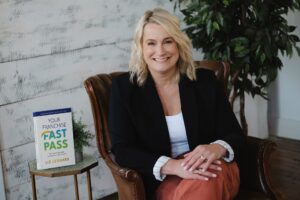“It’s not where you start, it’s where you finish that counts.”
More than 30 years of hard work as an IT specialist in the banking industry ended in a layoff for Joe N., a 59-year-old who had set his sights on retirement within the next decade. Months of fruitless job searching followed the layoff. In his conversations with recruiters and the few employers he interviewed, it was made clear to him that his earnings potential had plummeted due to the flood of younger tech workers who were willing to work for less.
Like many baby boomers who find it difficult to regain their footing after being laid off or downsized, Joe ultimately made the decision to explore going into business for himself. This was not his first choice. Rather it seemed like the only option that held any hope of adequate financial reward.
In the week following Thanksgiving, Joe was awarded a franchise and at that moment became a business owner! What began as a search for another career opportunity ended with a choice to take a different path entirely. As we head into the New Year, Joe will be finalizing his plan to build a highly successful business that will allow him to control his hours, his earnings and his commitment to building a solid base of happy customers.
The following is a summary of Joe’s journey from a career path in IT to taking the other path forward.
The beginning
After graduating from high school Joe made the decision to enter the Navy, serving in three detachments overseas as an airman. Returning home in the early 80s he was faced with the harsh realities of the job market due to an economic recession.
Not finding any immediate work, Joe took a technical course that allowed him to land a job repairing copiers. This wasn’t exactly his dream job but it paid the bills. Since he had always liked computers he eventually took courses in accounting and computer science discovering that he enjoyed the combination of these two skills. His acumen for math helped to elevate his value and he eventually joined an Investment Bank in Connecticut, thereby launching what would become a thirty-year career in banking, specifically in the operations side which from the start drew upon his computer expertise.
By the mid-eighties, headhunters were calling. Joe eventually landed his “perfect job” at a bank in Greenwich, CT where he excelled, receiving the company’s dependability award in 1991.
But the era of the growth of big banks was just around the corner. In 2000, Joe’s regional investment bank was acquired by a much larger financial enterprise. Joe kept his job but experienced unease as the new company made a number of poor investments from the time of the acquisition to 2007. In 2008, the collapse of the banking industry threatened the future of Joe’s employer. The bank lost millions of dollars and as a result, was forced to cut its employee base from 3,500 people to 1,500. Although Joe survived the first round of layoffs and a series of future cuts, he knew his job was a risk. In the summer of 2017, the bank executives decided to fully outsource the entire IT department. By October he was out of a job.
With his solid track record of service to this industry, Joe initially believed that given time and effort he would eventually resume his career. Working and reworking his resume, using online job searches and then relying on help from former colleagues, Joe did all that he could to promote his talents and work ethic to the banking community and on LinkedIn.
Three months of searching turned into six months. In late spring of 2018, franchise advisor Liz Leonard reached out to Joe via LinkedIn to suggest that he might want to consider the option of franchise ownership, a route that offers new opportunities to people who have been downsized.
“I spoke with her a couple times but didn’t know if (franchise ownership) was something I was interested in,” Joe said. “I was leery at first. This sounded interesting, but there had to be a lot involved in this.”
With the arrival of summer, Joe arrived at his own decision — to take advantage of Leonard’s free consultation to assess whether ownership might, in fact, fit his skill sets and offer him a different path forward. He took a part-time job while conducting his evaluation which essentially sealed his decision to become a business owner. Working the graveyard shift for an IT firm was difficult and demoralizing and also represented a major decrease in his earnings. Joe faced the fact that the only road forward was one that would lead to self-employment.
Joe evaluated three different franchises simultaneously. The one that rose to the top of his list was a design-oriented franchise that specialized in providing window covering solutions to homeowners and businesses.
Joe explained “the thing that attracted me to this company is that they deal with dozens of national vendors,” giving him the ability to compete on price and service at the local level. He also appreciated that he could serve a wide range of consumers, from the budget-minded to those with more upscale tastes. “I knew this was something I could wrap my hands around and really enjoy doing.”
As part of his evaluation, Joe hit it off with the franchise company’s down-to-earth CEO after completing a comprehensive series of educational webinars. As he neared the end of the evaluation process he was given the opportunity to talk directly with other franchisees and learn how they were doing financially as business owners. He was inspired by what he learned. “I thought, if I can do half of that it will double or triple my salary in the banking world.” At this point, it simply “made sense” to quit his job and commit to moving forward with this new venture.
Joe is currently focused on elevating his “product knowledge” and finalizing his “marketing strategy” so that he can begin the new year with solid growth.
Joe credits the help and encouragement of Liz Leonard and her partner, Sarah Swift. “They were very hands-on” and supportive as we worked through the learning curve relating to franchises and franchise ownership. “They’re not going to let anyone go through this process – especially someone like me who didn’t have any knowledge – alone.”
“There’s a lot of firsts here for me. I feel in time I can get good at this if I’m driven enough, which I feel I am.” My intention is to “excel.”





